
Written by Iza
Edited on
8 January 2023
·
13:46
How do you choose the right brush attachment for your teeth?
An electric toothbrush only continues to brush thoroughly if you replace the brush attachment in time. Brush attachments come in different shapes and sizes. Most people keep buying the same ones. If you want to be smart about it, you should choose a brush attachment that your teeth really need. We'll explain it to you.
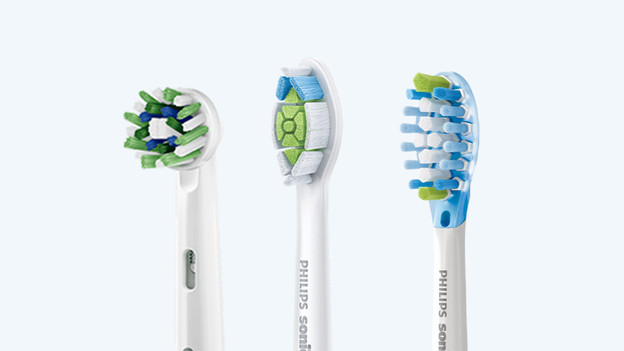
Choosing a brush attachment
When choosing the best brush attachment for you, ask yourself the following questions:
- Do you only want to remove plaque or do you want clean your teeth extra thoroughly?
- Do you have sensitive teeth or inflamed gums?
- Do you want whiter teeth?
- Do you want to brush your tongue?
- Do you have braces or baby teeth?
Do you only want to remove plaque or do you want to clean your teeth extra thoroughly?

Remove dental plaque
The goal of brushing your teeth is to remove plaque. If you don't brush off the plaque in time, it hardens into tartar. If you don't have bleeding gums or sensitive teeth, you don't need a special brush attachment. That's because all brush attachments in our range can remove plaque.

Clean extra thoroughly
If you've been to a party or had a lot of garlic at dinner, you probably want to clean your teeth extra thoroughly. A thorough cleaning is useful if you often have cavities or have dental plaque. You can brush thoroughly with a brush attachment with extra long bristles. It cleans deep between the teeth and allows you to reach difficult-to-reach places.
Do you have sensitive teeth or inflamed gums?

Sensitive teeth
Once dentin is exposed, by receding gums for example, this can cause sharp pain. That's what makes teeth sensitive. You can prevent inflamed gums and sensitive teeth by thoroughly brushing off dental plaque. But if you already have sensitive teeth, brushing them can be quite painful. Choose a brush attachment with extra soft bristles to make brushing more comfortable. You can still thoroughly clean your teeth that way, but it'll feel a lot better.
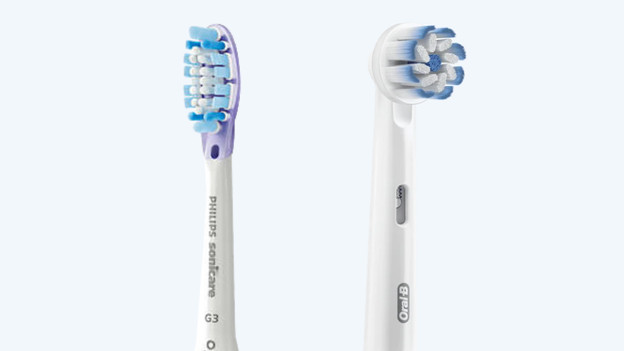
Inflamed gums
If you have inflamed gums, it's not only important that you use the right brush attachment, but also that you floss between your teeth. That's because inflamed gums are caused by bacteria that form on your teeth and along the gum line. Inflamed gums bleed when you brush your teeth and feel painful. Brush attachments with extra long and soft brushes can help treat your gums, because they also clean between your teeth and molars.
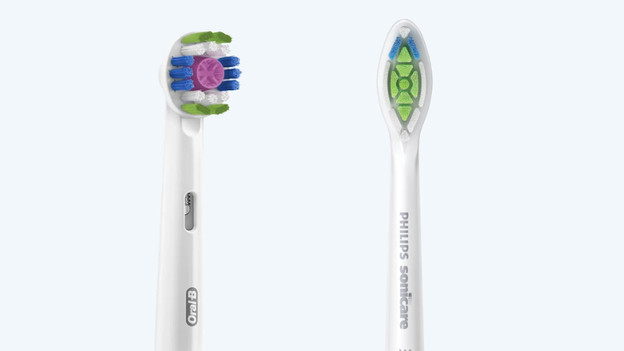
Do you want whiter teeth?
The more coffee or red wine you drink, the quicker your teeth will discolor. The acids in these beverages damage the tooth enamel, but they also leave stains. You can remove these stains by brushing with a whitening brush attachment. These brush attachments have extra bristles that are placed closely or a polishing cup that mildly scrapes the stains off your teeth.
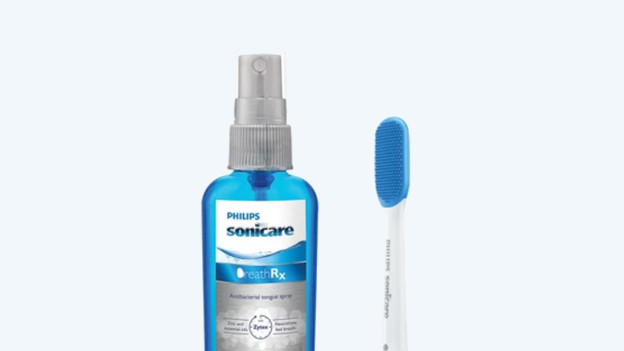
Tongue
Your tongue is a source of bacteria, which mostly cause bad breath. And yet, you tend to forget your tongue when brushing your teeth. A missed opportunity. With a tongue cleaner, you can clean your tongue thoroughly and comfortably. Brush attachments suitable for cleaning your tongue aren’t designed to clean teeth.
Do you have braces or baby teeth?
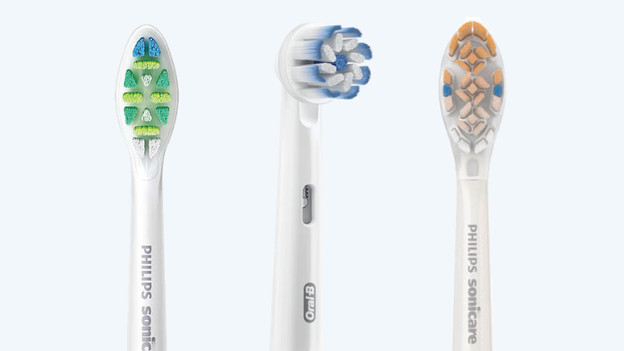
Braces
If you wear braces, it's even more important to keep your teeth nice and clean. Brush attachments for braces make it easy to clean behind the wires of the braces. The cleaner you keep these zones, the less likely it is that bacteria will settle there.

Baby teeth
Delicate children's teeth shouldn't be brushed with powerful brush attachments for adults, but with a brush attachment for baby teeth. These have softer bristles to make sure children never brush their teeth or gums with too much pressure. This way, they can gradually get used to the intensity of electric brushing. Brush attachment for children come in fun editions like Sparkly, Frozen, and Star Wars.
Article by Iza
Toothbrush Expert.
